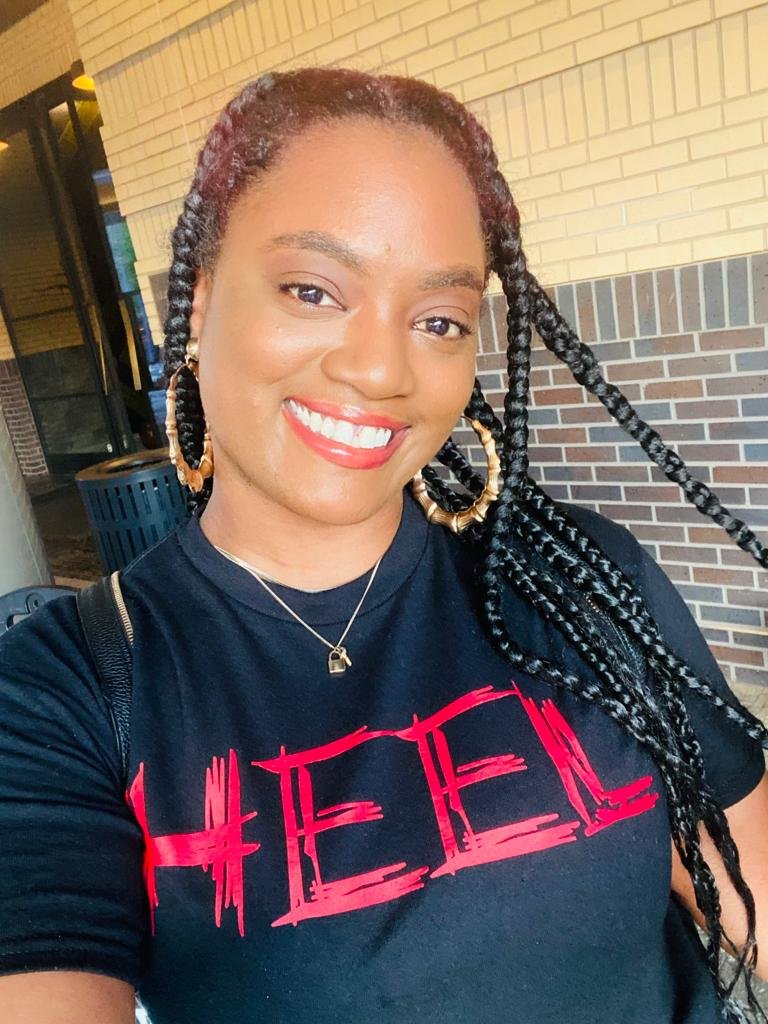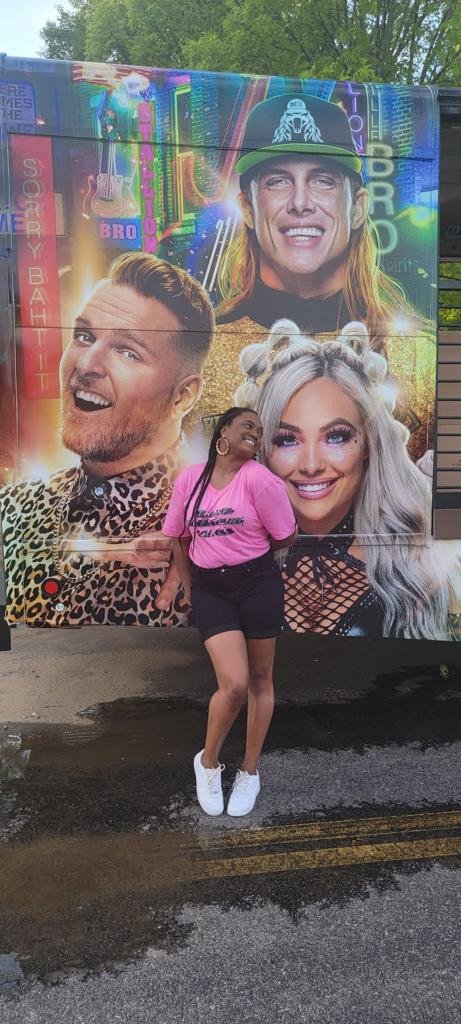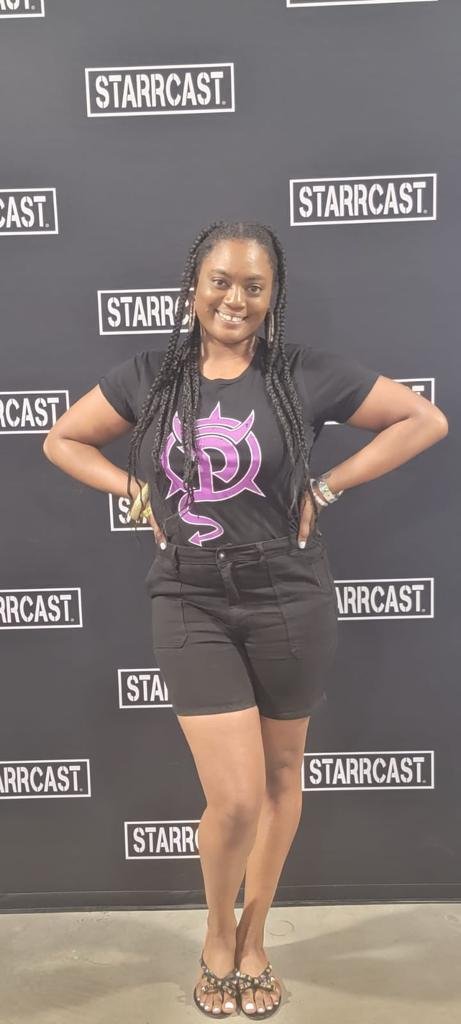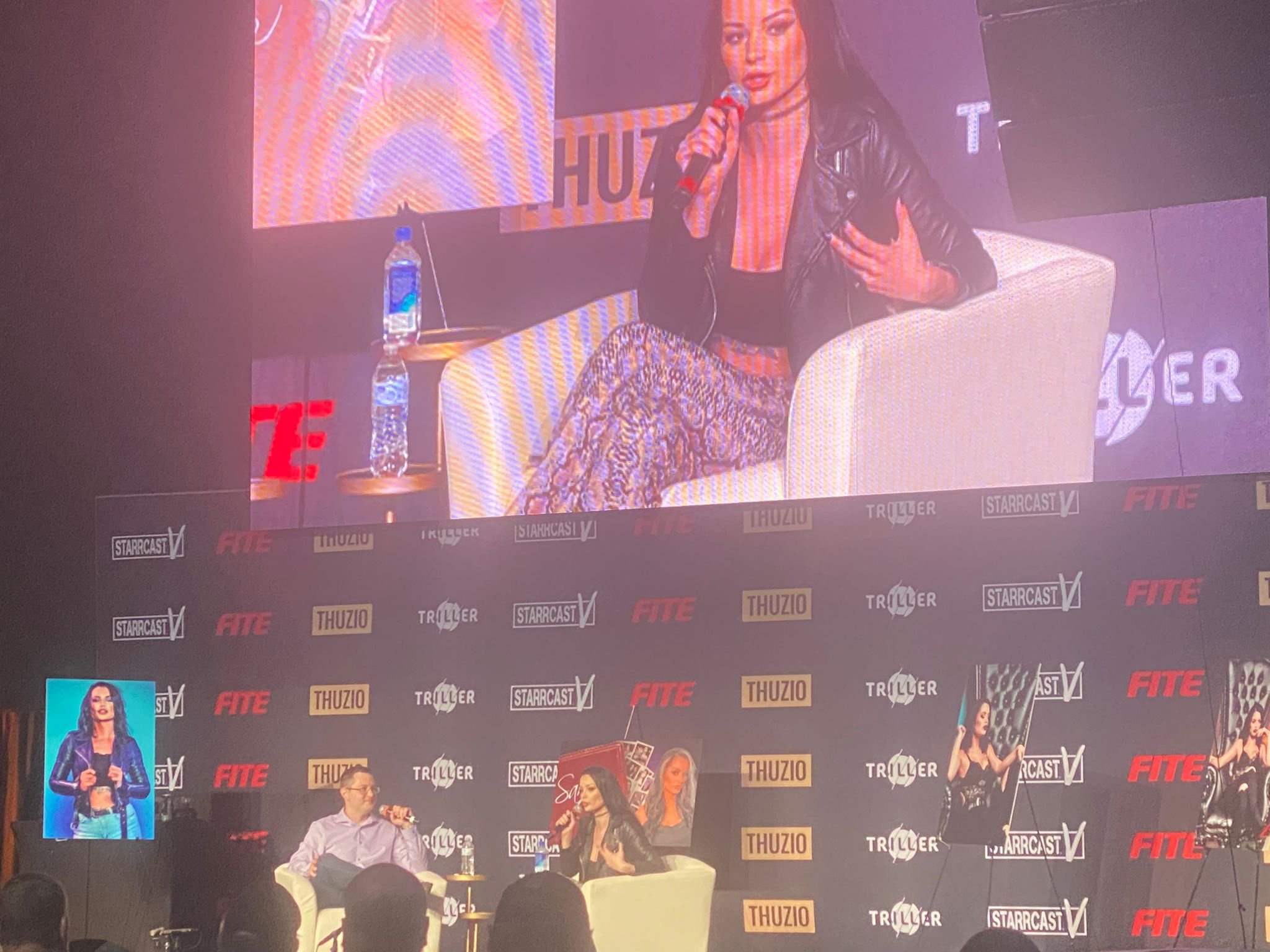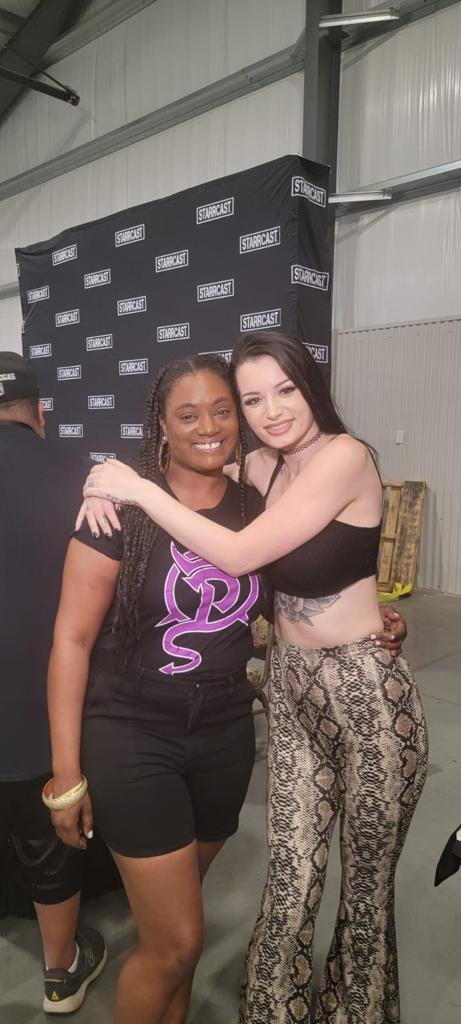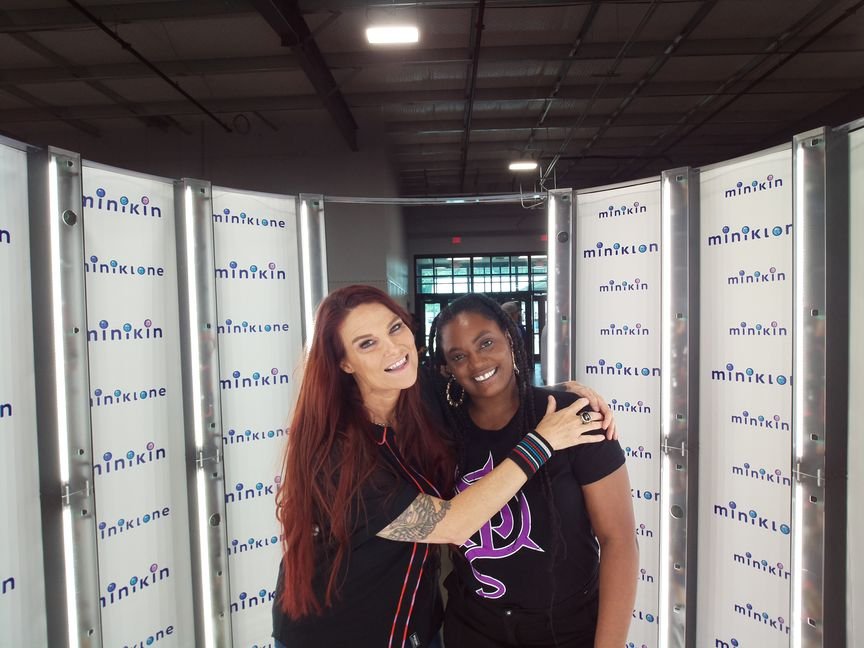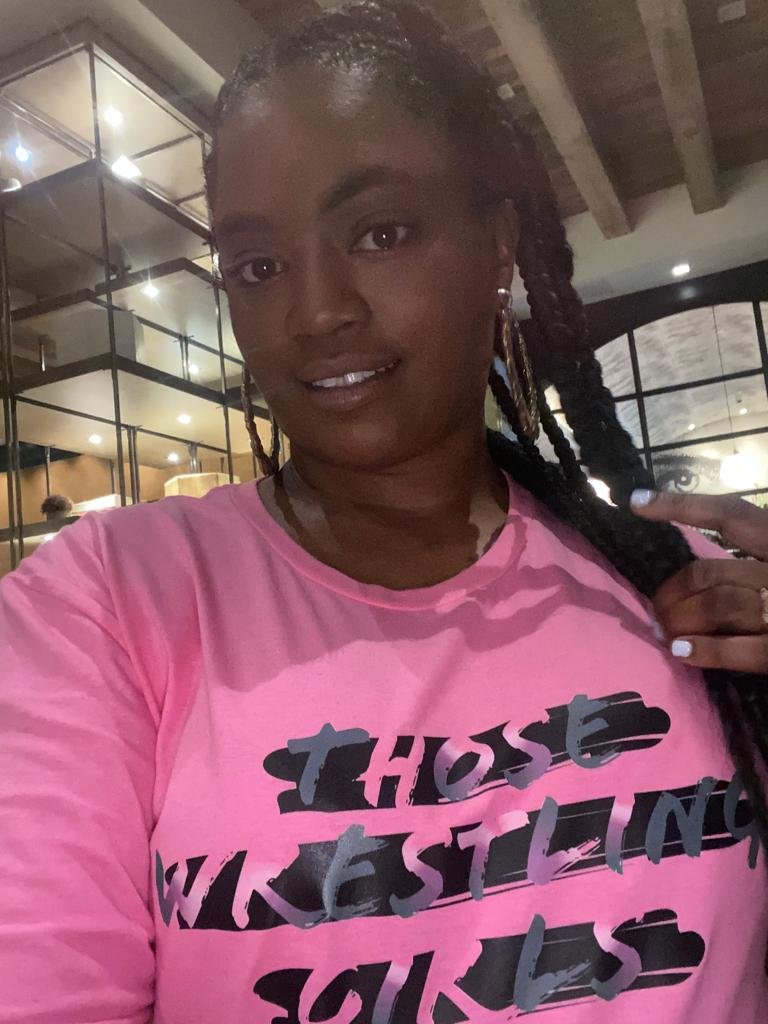By Patricia Rogers | Posted Monday, August 8, 2022
INTRO
Back with another edition of Words with P.R. I am back from Nashville, TN and had a bit of post-vacation blues. I learned a lot about myself on this trip. First off, six days is a little too long to visit one city. Next time I am on vacation for six days, I think I want to split that time between a couple different places. But all in all, I had an amazing time. I was in “Music City” for the big 4 WWE PPV: SummerSlam weekend. And when a big 4 comes to a city, all of wrestling goes there. Including the Starrcast V convention that brought more wrestling matches, panels, discussions, and even the Last Match and Roast of legendary wrestler, Ric Flair. I recommend Nashville to anyone who has not been there and likes live music, music history, and partying.
This edition is about recognition, and where you should seek it. When it comes to wrestling, which is a sport whose winners are “predetermined” (don’t ever say fake), when it comes to recognition, this can get complicated because there is a part of it all that comes from a person’s choice. So when it comes to ranking the best of the best, where do you find that validation? Who is to say who is the best wrestler?
For decades Pro Wrestling Illustrated was one of those places where wrestlers could measure up with others in the industry. However, this list has been historically white and male. Shoutout to the current Editor-In-Chief Kevin McElvaney who has worked hard with his team to change that. Since coming into the role of Editor, the list has become more diverse, and they even added 50 more women to the annual 100 list (compared to the men’s 500).
However, my friends over at The Black Rasslin’ Podcast created what was called the #BRP50, ranking black wrestlers of all genders. A list for us, by us. For some reason, there is always debate over being featured on the list. I wanted to ask the team who worked so hard on the list, their thoughts.
INTERVIEW - The Black Rasslin’ Podcast team
P.R.: Why was the BRP 50 necessary?
Black Rasslin’ Podcast: There were actually a few factors that went into why something like the BRP 50 list is necessary. First, it started out as something to do that highlights Black pro wrestlers that wasn’t posting Black pro wrestlers on IG every day during Black History Month. Everyone was doing that, so we decided to do a proper ranking and have it drop on Juneteenth. With so much Black talent across WWE, AEW, Impact, ROH, and across the independent scene worldwide, it’s hard to find something that shines a light on the true talents within our community.
And on the flipside, there are a lot of pro wrestling outlets out there, and while a lot of podcasts speak for Black people in the community, there aren’t many places that can be considered an authority on Black pro wrestling, specifically. Is the BRP 50 that? The jury may still be out. But one of the loudest things we hear, every year, is about how people found out about Black performers because of the list. If all we do is educate Black pro wrestling fans on Black pro wrestling talent they weren’t aware of? Our job is done.
When did the list debut and what has been the general response ever since?
The list debuted in 2019, to modest acclaim. Shouts out to Stat Guy Greg of Cheap Heat; he was an early champion of the list. He does his Black Power Rankings every week on the show, and he put Black Rasslin’ on the ranking, and continues to put us on the ranking every year when the list drops.
Every year when the list drops, that week may be our most active week, just in terms of conversation—both positive and negative towards the list. We encourage the debate, and have made ourselves available to give people an idea of what goes into making the list. Healthy, spirited debate is always welcome, especially because we aren’t just throwing names onto a list because they are our favorites. A lot of factors go into the creation of the BRP 50.
What are the criteria and what was your work plan?
The key to understanding the BRP 50 is knowing that it’s an annual list that looks at the year each Black pro wrestler currently active had, roughly going from May to May (for example: the 2022 BRP 50 looked at the wrestler’s years from May of 2021 to May of 2022). There is a spreadsheet every year featuring Black performers and all kinds of stats: their ranking on the previous BRP 50, win-loss record, titles held (and the duration of those reigns), etc. Once that spreadsheet is live, each one of us creates our own 50 list; those lists are then mashed together and we get the initial rough BRP 50 ranking. At that point, we will meet and discuss the numbers and make sure the placement makes sense, which leads to a lot of questions, like Did they hold a title? How long was that reign? What’s their win-loss record? Were they on TV? How much time did they get? Was it good time? How impactful were they overall?
And while the brunt of the work on the list—which ranges from the ranking and finalizing to the creation of social assets, recording of the Top 10 discussion, and more—happens from around mid-May to Juneteenth, we will start early discussions on placement as far back as January. For 2022, the #1 spot was Bianca Belair’s to lose, but there was almost a world where she was #2 and Bobby Lashley was #1. That was a pre-Rumble discussion we were having.
Why do you think there has been so much smoke around the list?
Because at this point in the world of content, a list is ripe for picking apart and discussion, and a lot of the time, people just want their favorites at the top. And that’s why we encourage conversation—pick our list apart, bring us on your show, write an article explaining what you thought was wrong. The list won’t change, but the discussion about Black professional wrestling will live on, and that’s the ultimate goal. Keep Black folks names in your mouths, respectfully, when it comes to the real look of pro wrestling today, and in the future.
The other, sad fact is that there will also always be people who just don’t get it, for whatever reason. And that’s fine. You don’t have to agree with our list; it’s our list, and not your opinions. But in a world where people can (and do) get lost in the shuffle if their voices aren’t heard, it’s frustrating to question why a list like the BRP 50 is needed.
But just know, if anyone ever has a question about the BRP 50, our DMs are open, or just @blackrasslin on your social media of choice.
Who are some well-known wrestlers or people in wrestling who’ve supported the list?
To be honest, there has been a lot of love for the list over the last four years—we’ve even gotten smoke from wrestlers in the industry when certain individuals may not have made the list one year. But one of the biggest endorsements was WWE Hall of Famer Booker T., who made it a point to share a post about how many performers from his Reality of Wrestling school were on the list this year. Hell, Bianca Belair told Andreas Hale on The Corner Podcast that she read the article he wrote about her being #1 on the list. That felt like a huge win.
Please add anything you’d like the world to know about BRP and the list.
For anyone who has any doubt, know this: the BRP 50 is a labor of love. We wouldn’t be doing this list if we didn’t think it was necessary, and judging by the reaction of people who rock with us weekly on the podcast, our peers in the community, and the pro wrestlers that we are covering? It’s necessary.
How do you react to the term “Black Wrestling Renaissance”?
It’s an interesting term. You go to a Black Wrestle Fest or a Jobber Talk Panel or WaleMania or any number of cons, shows, and outlets for Black pro wrestling performers and fans, and you see the Renaissance live and in living color. It’s what everyone is doing when they crack a mic and speak their minds. It’s in the bumps Billy Dixon or Big E takes. It’s Jade Cargill’s attitude, Bianca Belair’s determination. It’s Bobby Lashley becoming a Black superhero during his recent championship runs. Black people have always been dope; now we’re just being able to see it, regularly.
What does it mean to be a black-centric podcast/brand in the wrestling space?
It’s really about the culture, right? Any podcast—hell, many podcasts—will go down an episode of Raw and break each match down, move for move. You can get that anywhere; being able to be unapologetically ourselves, be it a reference to someone's sneakers or a Verzuz or asking if John Cena is the Jay-Z of pro wrestling. It’s about seeing something and saying something, because we know that our voices hold weight and that, even if change doesn’t happen overnight, we are still moving in a way that will better the future of the pro wrestling industry, both in the ring and in the cheap seats.
Ultimately, it means representing your own, standing up for your own, and building a foundation for kids like Victor Perry’s Wrestling Club, who have whole group chats for wrestling and are building their own gimmicks and storylines during their free time. It’s about making sure we are aware of the okey doke, while championing the folks who should get those pushes to the top. It’s about the freedom to be as much of our natural selves as we want to be, without the fear of being looked down upon or assumptions of not being as versed in the history of pro wrestling because of the melanin coursing through our veins.
